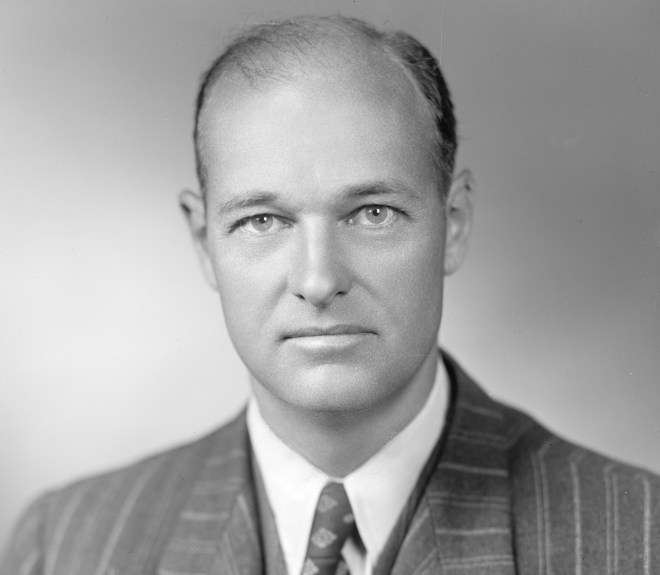Fareed begins his review of The Kennan Diaries with that observation from my last book, The Conservative Soul, which he believes helps explain why America, “as an experiment in modernity, hasn’t had many genuine conservatives in its history.” George F. Kennan, he seems to think, was one of them, with all the ambiguities that entails. Consider this beautiful lament from Kennan’s diaries that Fareed highlights:
“I cannot help but regret that I did not live 50 or 100 years sooner,” he wrote in one of his entries. “Life is too full in these times to be comprehensible. We know too many cities to be able to grow into any of them, . . . too many friends to have any real friendships, too many books to know any of them well, and the quality of our impressions gives way to the quantity, so that life begins to seem like a movie, with hundreds of kaleidoscopic scenes flashing on and off our field of perception, gone before we have time to consider them.”
It’s a vivid expression of a deep, instinctual conservatism, especially when you consider that it was written in December 1927.
If you think of conservatism in this way, you can see why it has found so few followers in the restless, creedal and optimistic uplands of America. But that may make it all the more necessary in this country. In my view, American conservatism desperately needs a deeper sense of the limits of American power, of the delusions behind rampant materialism, of the wisdom in silence and nature and tradition. A little more skepticism about change might help as well. But as always with cultural pessimists, Kennan’s suspicions of modernity could slip toward the strange and reactionary, as all conservatism can:
Kennan’s conservatism was poetic, comprehensive and utterly impractical. In 1979, he outlined the kind of politics he would favor. “In addition to being a political isolationist, I am a believer in autarky. Not only do I believe that the healthy national society would rigidly eschew the importation of foreign labor . . . but I consider that it should restrict to a minimum its economic and financial involvements with other peoples.”
To some readers, this may sound like North Korea, but Kennan’s celebration of the character, coherence and moral superiority of small communities has a rich pedigree in European thought. It also informs what can only be described as Kennan’s racism. Writing on a flight to Los Angeles in 1978, Kennan thinks about how few white faces he will see when he lands and laments the decline of people “of British origin, from whose forefathers the constitutional structure and political ideals of the early America once emerged.” Instead, he predicts, Americans are destined to “melt into a vast polyglot mass, . . . one huge pool of indistinguishable mediocrity and drabness.”
Douglas F. Brinkley is on the same page as Fareed. He finds the diaries contain “enough gloomy prognostications to give the book of Revelation a run for its money”:
As a philosopher, Kennan is a gold-plated Cassandra. Moreover, on a number of occasions, he espouses views that are homophobic and pro-eugenics.
“Nothing good can come out of modern civilization, in the broad sense,” he writes of his dissatisfaction with life in a 1932 entry. “We have only a group of more or less inferior races, incapable of coping adequately with the environment which technical progress has created. . . . This situation is essentially a biological one. No amount of education and discipline can effectively improve conditions as long as we allow the unfit to breed copiously and preserve their young.” …
Disdainful of automobiles and the Californication of America, full of loathing for strip malls and traffic jams, he reveals his preference for sailing above all else. “I turn my back, figuratively, on the land and keep my eyes fixed on the horizon of the sea — the abused, raped sea, deprived of its dignity and its mystery by the ubiquitous oil rigs, the monstrous thundering automobile ferries, the airplanes over head, the pipelines underneath.”
Kennan would have loathed this Oscar-night commercial, as Copyranter did:
But Christian Caryl argues that it was those very sentiments relayed by Brinkley that made Kennan a brilliant analyst and strategist – they “can’t be seen in isolation from the rest of the package”:
Kennan’s great virtue as an analyst was his ability to see things from the outside. No one was better at tracing out the logical implications of a particular policy in all their elaborate permutations (even if, in so doing, he often ended up overlooking the grubbier but no less important aspects of everyday politics). And this was not despite but because of his own proudly cultivated sense of alienation, his persistent suspicion that he’d been born into the wrong era, or that, above all, he was really a Russian at heart.
He continues with an example:
His black, razor-sharp diagnosis of Stalinism—at a time when pro-Soviet wartime propaganda in the United States presented a diametrically opposed picture of the regime—is of a piece with this innate skepticism and independence of thought. He viewed the mendacious pro-Soviet ambassador to Moscow, Joseph Davies, who hailed the show trials and Stalin, with undisguised contempt and revulsion. As his diaries demonstrate, not everything that he concluded was fruitful or wise or perspicacious—and I have to confess that some of the things I learned about the man from this book did diminish his image in my eyes. But I would still insist that it was precisely Kennan’s ability to ask big questions, and his gift for transforming his insights into powerful prose, that made him so unique. … What I do know is that we condemn him, and those like him, at our own risk. A dose of grumpiness in the right place can work wonders.
Indeed it can.
